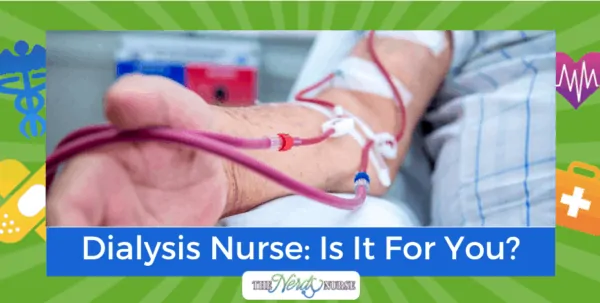The following are some nursing care plans and more information about anxiety nursing diagnosis as you care for anxious patients.
When you have a patient that has anxiety – whether it is severe or minor – it changes how you interact with them and communicate with them. There are more techniques you need to do in order to help them relax. This is why a nursing care plan is so important.
What Is A Nursing Care Plan
A nursing care plan identifies the patient’s needs and risks and outlines the steps the nurse will take to meet those needs. It also explains logic behind the methods the nurse will use and the ideal outcomes they are hoping to achieve.
Nursing care plans look different depending on the school or health care facility that is doing it. The design or organization of the document isn’t as important as what is on it. You need to know how you are going to handle different situations and why – what outcomes are you hoping for?
Anxiety In Patients
Patients display anxiety in a lot of similar ways. The most common symptoms of anxiety include:
- Nervousness or Restlessness
- Talking about impending doom or danger
- Increased heart rate
- Rapid Breathing
- Sweating
- Trembling
- Trouble Concentrating
- Having Trouble Sleeping
Anxiety Nursing Diagnosis
Before you create a nursing care plan, you need to identify the exact type of anxiety your patient is displaying. There are three different types of anxiety most people have – vague or temporary anxiety, anxiety disorders, or panic disorders.
Vague Anxiety
This refers to times when anxiety is caused by stimuli. If a patient is scared of a procedure or how sick/injured they are, it makes sense that they will have anxiety. A better way to understand this is as a vague feeling of dread or apprehension.
Anxiety Disorders
There are diagnosable disorders that share features with excessive anxiety. People with anxiety disorders will demonstrate unusual behaviors such as panicking without a logical reason or stimulus.
Panic Disorder
People with panic disorders will have episodes of panic attacks that last 15-30 minutes long where they have intense, escalating anxiety. These are also diagnosable by a psychiatrist or physician.
Nursing Assessment For Anxiety
As a nurse, you will need to do an assessment if your patient is exhibiting signs of anxiety. This is especially important if their actions are impeding their care (like if they refuse to take medications).
This is what you should be assessing:
- Level of anxiety – Is it mild, moderate, severe, or panic level? The level of anxiety will affect how you respond.
- Physical reactions – Pain or rapid breathing with no physical cause.
- Validate observations – Ask the patient if they are feeling anxious.
- Coping Techniques – Observe how the patient is using coping techniques. Ask questions about the effectiveness of them. This will tell you whether they need new or more ideas.
Nursing Care Plan For Anxiety
Finally, you need to document the outcomes you hope to see and the interventions you will be using. These need to be measurable outcomes and the interventions must be something that you can document. Let’s look at a few examples of each.
Nursing Outcomes
The outcomes are what you hope happens as a result of your interventions. This is the measurable result that you are striving to achieve. Some examples of nursing outcomes for anxiety include:
- Verbalize feelings of dread or anxiety
- Respond to relaxation techniques
- Reduce their own anxiety levels
- Take anti-anxiety medication
- Explore possible stressors
- Verbalize interest in speaking with a psychiatrist
Nursing Interventions
After you know the outcomes you are trying to achieve, write out the interventions you will put into place. These are the action steps you will take to meet your goals with the patient. This nursing interventions for anxiety guide explains more ideas in detail.
Some examples of nursing interventions for anxiety are:
- Assess the patient’s psychological comfort
- Encourage the patient to verbalize their own anxiety
- Help the patient create coping mechanisms
- Educate the patient how to correctly take anti-anxiety medication.
- Encourage the patient to identify possible stressors
- Inform the patient about how to reach and schedule a meeting with a psychiatrist.
Final Thoughts
An anxiety nursing diagnosis is really important as you care for patients that panic or exhibit behaviors that make it difficult to care for them. If you need more support, reach out to your charge nurse or nurses with more experience. This is a very delicate thing and even if you do everything correctly they might still have a panic attack. This isn’t your fault – even if it can feel very defeating at times.
More Anxiety Resources
Anxiety happens a lot in hospitals and health care facilities. Here are some more resources that will help you out.





